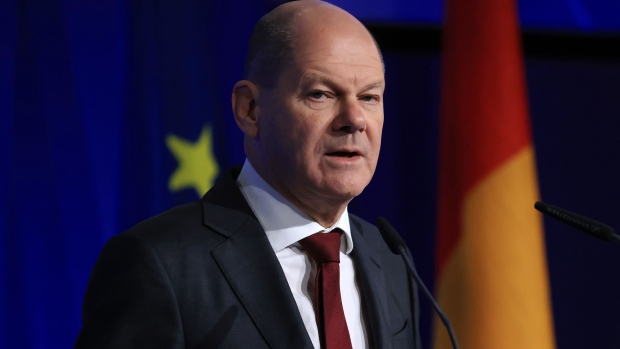Dec 7, 2022
Germany Vows to Shield Infrastructure Against Russian Threats
, Bloomberg News

(Bloomberg) -- German Chancellor Olaf Scholz’s government pushed ahead with efforts to shield critical infrastructure against foreign threats and improve the crisis resilience of Europe’s largest economy after Russia’s invasion of Ukraine.
Scholz’s cabinet passed a strategy paper Wednesday outlining new regulation which aims to address and improve the physical protection of critical infrastructures on a federal level for the first time.
“Since the beginning of the criminal Russian war of aggression against Ukraine, the security situation in Germany has changed,” Interior Minister Nancy Faeser said in a statement. “We take the current threats very seriously - and we’re taking action.”
The government will define areas that require special protection and set mandatory standards to be implemented by operators of critical infrastructures. This is likely to include more investments in physical protection such as fences, as well as hiring more security staff.
European policy makers focused on the exposure and protection of critical infrastructure after blasts in September severed the Nord Stream 1 and 2 gas pipelines linking Russia with Germany.
The damage highlighted the vulnerability of Europe’s energy networks, which came into yet sharper focus in October as radio cables in Germany were cut, halting rail service for hours while Norway began detecting “abnormally high” drone activity near its offshore energy installations.
German Transport Minister Volker Wissing has said he could not rule out the involvement of foreign countries in what he called an act of sabotage that halted train services across northern Germany on Oct. 8.
©2022 Bloomberg L.P.






